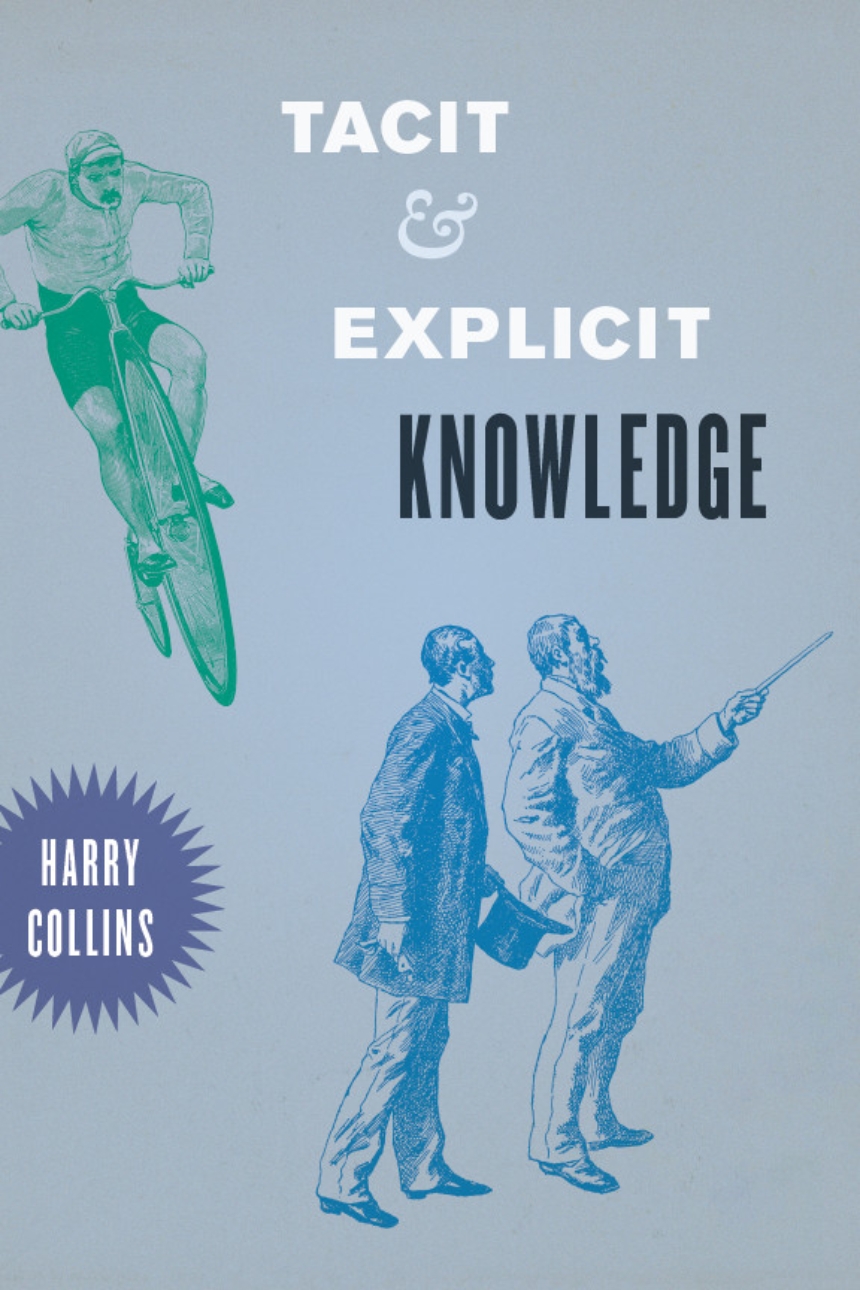Tacit and Explicit Knowledge
Much of what humans know we cannot say. And much of what we do we cannot describe. For example, how do we know how to ride a bike when we can’t explain how we do it? Abilities like this were called “tacit knowledge” by physical chemist and philosopher Michael Polanyi, but here Harry Collins analyzes the term, and the behavior, in much greater detail, often departing from Polanyi’s treatment.
In Tacit and Explicit Knowledge, Collins develops a common conceptual language to bridge the concept’s disparate domains by explaining explicit knowledge and classifying tacit knowledge. Collins then teases apart the three very different meanings, which, until now, all fell under the umbrella of Polanyi’s term: relational tacit knowledge (things we could describe in principle if someone put effort into describing them), somatic tacit knowledge (things our bodies can do but we cannot describe how, like balancing on a bike), and collective tacit knowledge (knowledge we draw that is the property of society, such as the rules for language). Thus, bicycle riding consists of some somatic tacit knowledge and some collective tacit knowledge, such as the knowledge that allows us to navigate in traffic. The intermixing of the three kinds of tacit knowledge has led to confusion in the past; Collins’s book will at last unravel the complexities of the idea.
Tacit knowledge drives everything from language, science, education, and management to sport, bicycle riding, art, and our interaction with technology. In Collins’s able hands, it also functions at last as a framework for understanding human behavior in a range of disciplines.
200 pages | 3 halftones, 7 line drawings, 6 tables | 6 x 9 | © 2010
Cognitive Science: Language
Psychology: General Psychology
Sociology: Theory and Sociology of Knowledge
Reviews
Table of Contents
Preface
Acknowledgments
Introduction. The Idea of Tacit Knowledge depends on Explicit Knowledge!
Part I. The Explicit
One. Strings and Things
Two. Digital Strings, Analogue Strings, Affordance, and Causes
Three. Explicable Knowledge
Part II. Tacit Knowledge
Four. Relational Tacit Knowledge
Five. Somatic Tacit Knowledge
Six. Collective Tacit Knowledge and Social Cartesianism
Part III. Looking Backward and Looking Forward
Seven. A Brief Look Back
Eight. Mapping the Three Phase Model of Tacit Knowledge
Appendix 1. An “Action Survey”
Appendix 2. What Has Changed since the 1970s
References
Index
